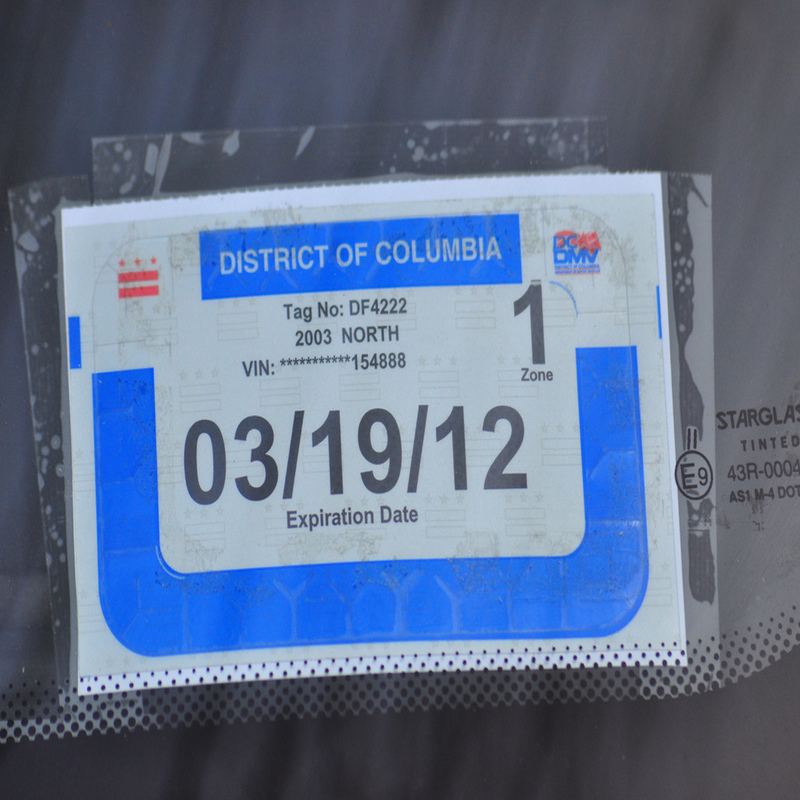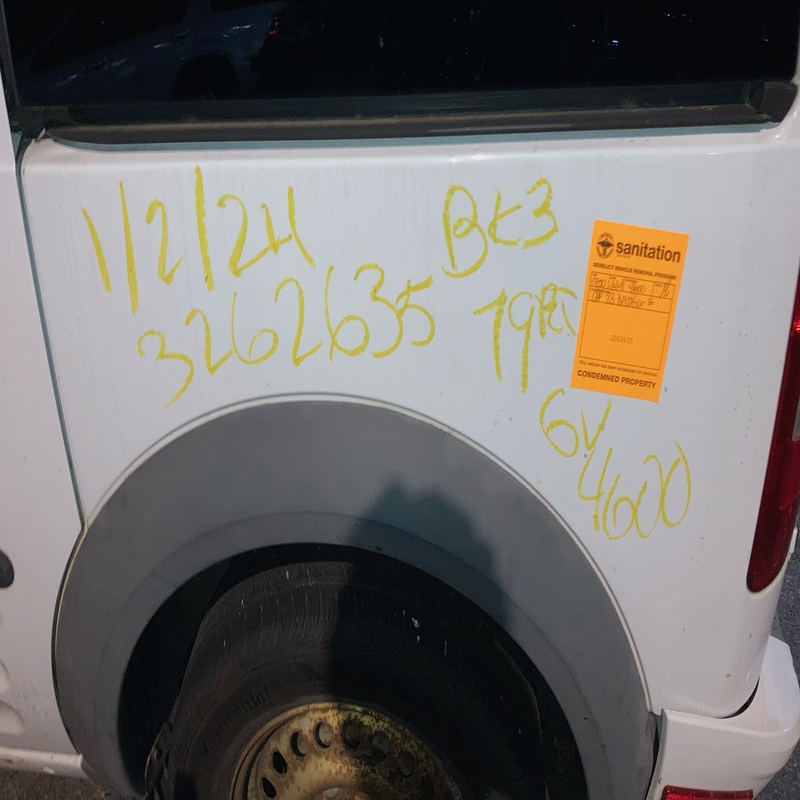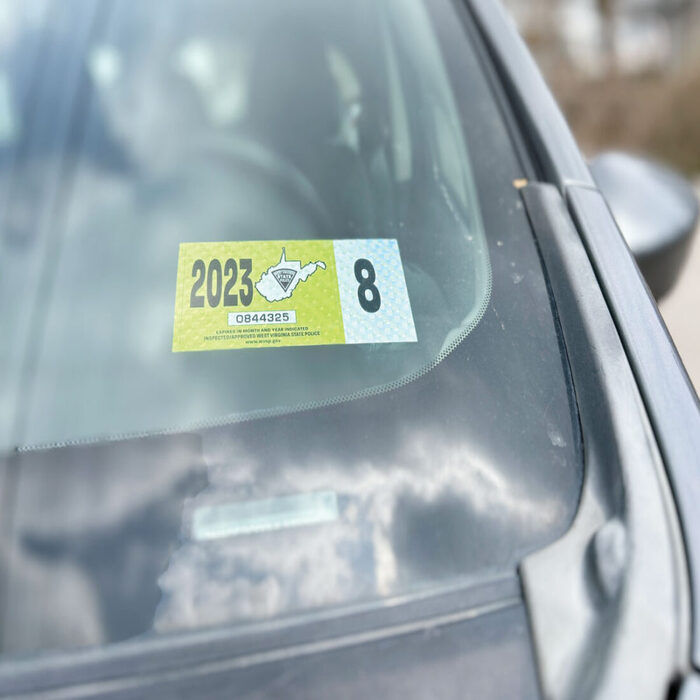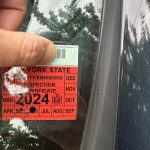What Does a Registration Sticker Signify?
Can i drive my car while waiting for registration sticker? A registration sticker is more than just a piece of paper. It proves your vehicle complies with state regulations. It shows you have paid all necessary fees and taxes for your vehicle. In short, the sticker signifies that your car is legally permitted on the road.
When affixed to your vehicle, usually on the windshield or license plate, it confirms to law enforcement and other authorities that your car is registered. This small decal carries important details. It includes your registration expiration date. It can help track if your car registration is current.
Without this sticker, there’s no quick way for officers to verify your registration status. This can lead to traffic stops and potential fines. For other drivers and pedestrians, it’s a signal that your vehicle is safe and meets environmental standards.
So, can you drive your car while waiting for a registration sticker? It’s a risk. It can lead to fines and even your vehicle being impounded. Still, some states offer grace periods or temporary permits. They provide these options during the waiting time for your registration renewal. Even with these options, it’s best to avoid driving unregistered.
The sticker is a simple thing that holds significant legal weight. It ensures you’re driving within the law. Always make sure your sticker is visible and up to date. If you’re caught driving without one, be ready to face the consequences laid out by your state’s vehicle registration laws.
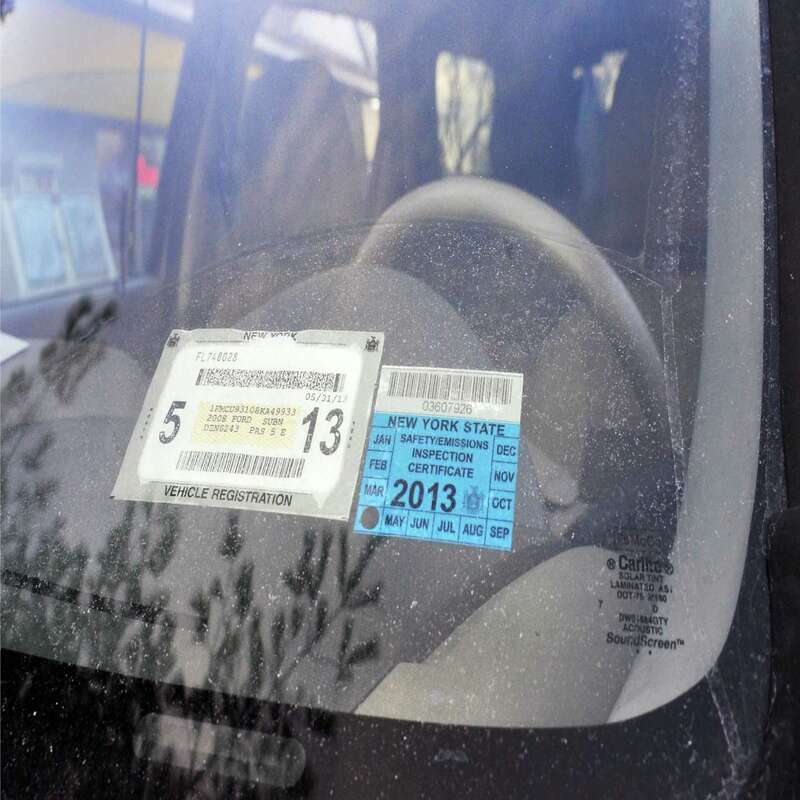
Consequences of Driving Without a Registration Sticker
Driving without a registration sticker is not just a minor oversight; it comes with significant risks. Encountering law enforcement without a valid sticker can lead to several negative outcomes. Here are potential consequences:
- Traffic Stops: Police officers often check for valid registration stickers. If yours is missing, expect to get pulled over.
- Fines: Each state imposes fines for driving an unregistered vehicle. These fines can be costly.
- Vehicle Impoundment: In some cases, officers may impound your car on the spot.
- Court Appearances: You might have to explain your situation in court, adding to the inconvenience.
- Increased Insurance Premiums: Insurance companies may raise your rates if they learn you’ve driven unregistered.
- Criminal Charges: While less common, some jurisdictions treat this offense seriously, resulting in criminal charges.
Remember, the law requires a registration sticker. It’s vital to wait for your sticker or seek a temporary permit. To avoid these outcomes, refrain from driving if you are waiting for a registration sticker.
State-Specific Regulations for Vehicle Registration
Each state has unique laws for vehicle registration. It is crucial to understand the rules in your state. Some states may be strict, giving no leeway if you drive without a registration sticker. Others may be more lenient, offering a grace period.
In certain states, you can use a receipt of registration renewal as a temporary proof. This shows that you have initiated the process. Still, it’s essential to check with local DMV offices. They can provide the most accurate and current regulations.
Some states use electronic databases. Law enforcement can check your registration status in real-time. A missing sticker might not lead to penalties in such scenarios. But again, this varies widely.
To stay on the safe side, look up your state’s specific laws. Remember to renew your registration on time. If you are unsure, contact your DMV or visit their website for details.
It’s key to follow your state’s vehicle registration regulations. This helps avoid fines and serious legal issues. Can I drive my car while waiting for a registration sticker? Check your state’s rules to answer this. Each state’s response to this question may differ.
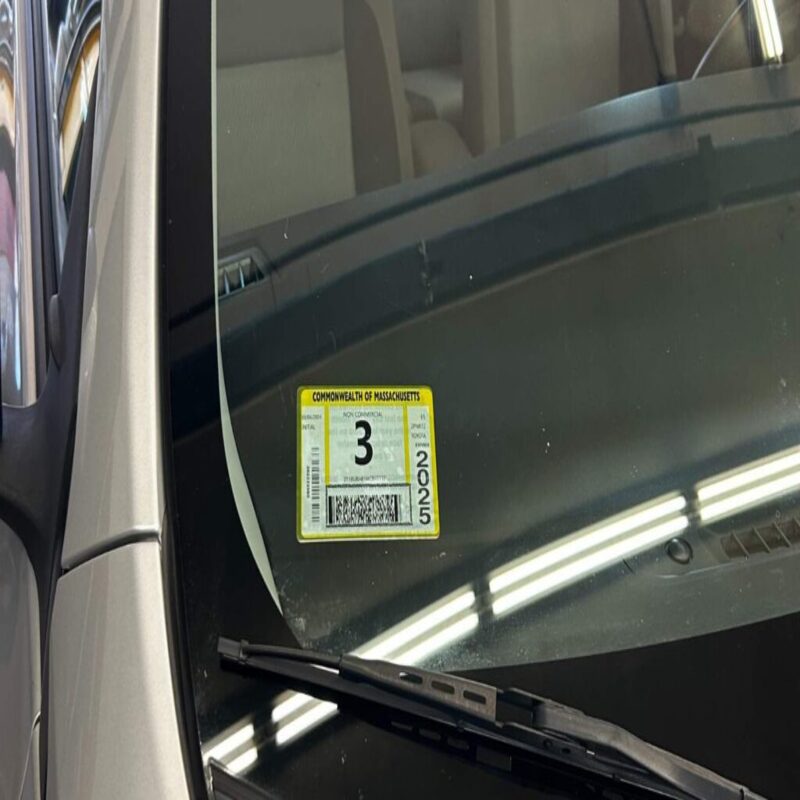
Grace Periods and Temporary Permits
In many states, a vehicle owner may use a grace period while waiting for a registration sticker. This grace period allows you to drive without the physical sticker temporarily. Let’s explore what this means and how you can benefit.
- Understanding Grace Periods: Some states offer a grace period after your previous registration expires. During this time, you can still drive legally. Check if your state provides this and for how long.
- Applying for Temporary Permits: If you’ve applied for a new sticker, you might get a temporary permit. This document serves as a placeholder until your sticker arrives. It’s usually a paper tag you can display on your car.
- Validity of Temporary Permits: These permits have an expiration date. Make sure you know how long yours is valid to avoid issues.
- Securing Documentation: Always carry proof of your permit or pending registration in your car. This can be crucial if stopped by law enforcement.
It’s essential to learn your state’s specific policies on grace periods and temporary permits. You should either visit your local DMV’s website or call for accurate information. By making use of these options, you can prevent being fined or having your vehicle impounded. Always remember, driving legally is your responsibility, and being proactive is key to avoiding penalties. Can I drive my car while waiting for a registration sticker? In many cases, yes, but first, ensure you’ve taken the correct steps to do so within your state’s laws.
Steps to Take If Your Registration Sticker Hasn’t Arrived
If your registration sticker is late, take action promptly. Here is what you should do:
- Contact Your Local DMV: Reach out to your local Department of Motor Vehicles. Confirm they have processed your renewal. Ask about any delays.
- Check Your Mailbox Regularly: Sometimes mail gets misplaced. Double-check your mailbox or with your neighbors. Your sticker might have arrived without your notice.
- Review the DMV Website: Many DMVs provide online updates. Log in to view the status of your vehicle registration.
- Request a Temporary Permit: If available, apply for a temporary permit. This permit allows you to drive legally until your sticker arrives.
- Gather Evidence of Renewal: Keep your renewal receipt or confirmation emails handy. Have them ready to show to law enforcement if needed.
- Avoid Driving If Possible: Minimize the risks. Avoid driving your car until the new sticker or temporary permit is in hand.
- Prepare for a Possible Traffic Stop: If you must drive, be ready to explain your situation. Show any proof you have of a pending registration.
Remember, the legality of driving without a registration sticker can vary. ‘Can I drive my car while waiting for a registration sticker?’ This depends on your state. Always strive to comply with the law and avoid potential legal issues.
Legal Remedies and Penalties for Non-Compliance
If you fail to comply with vehicle registration laws, there are legal remedies and penalties you may face. Non-compliant drivers should be aware of these potential consequences:
- Immediate Fines: If caught without a valid sticker, you can receive on-the-spot fines.
- Legal Sanctions: Some states may impose legal sanctions beyond fines, such as community service.
- Misdemeanor Charges: Depending on state law, you could face misdemeanor charges for driving unregistered.
- License Suspension: Repeat offenses could lead to the suspension of your driver’s license.
- Registration Hold: Your vehicle’s registration process might be put on hold or suspended.
The severity of penalties varies by state. Some may issue a warning for first-time offenders, while others enforce strict fines from the outset. ‘Can I drive my car while waiting for a registration sticker?’ To answer this, keeping within the law is vital. You should obtain a temporary permit or not drive at all. The legal system may provide some leeway in specific instances, but this is not a guarantee. Always aim to meet your state’s registration requirements promptly to avoid these penalties.
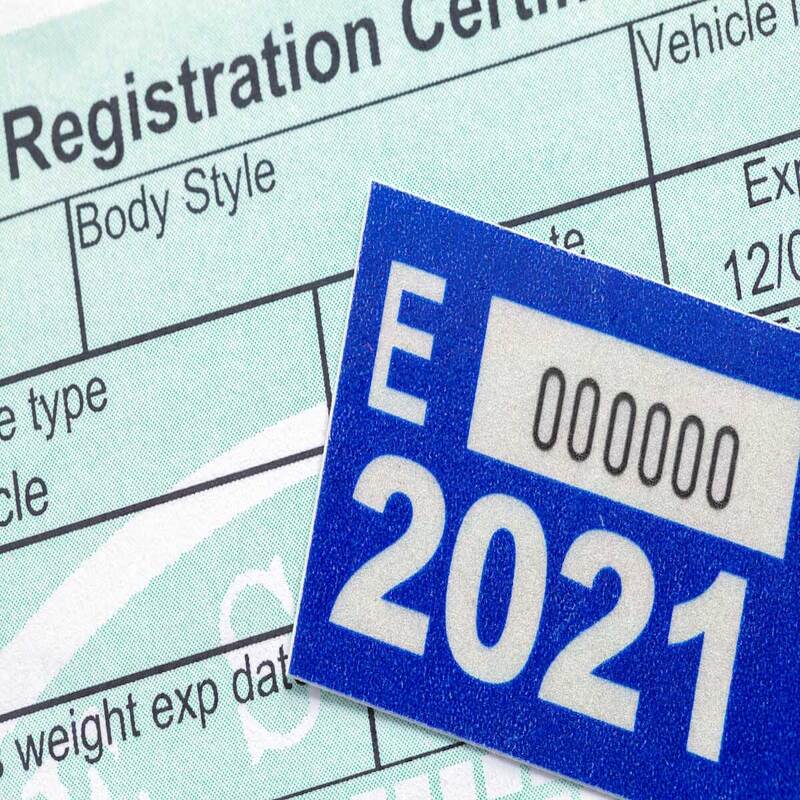
Preventative Measures to Avoid Driving Unregistered
The best strategy to avoid the headaches of driving unregistered is to prevent them beforehand. Here are some practical steps to help ensure you’re never in a position where you’re asking, ‘Can I drive my car while waiting for a registration sticker?’ Implementing these actions can save you from legal trouble and ensure your vehicle is always road-ready.
- Renew Early: Don’t wait until the last minute to renew your registration. Try to do so weeks in advance.
- Set Reminders: Use calendar alerts or apps to remind you when your registration is due for renewal.
- Stay Informed: Keep up with your state’s registration laws and any changes to them. Bookmark the DMV website.
- Keep Documents Accessible: Store registration documents, receipts, and temporary permits in your vehicle.
- Check Mail Promptly: After renewing, watch your mail carefully for the arrival of the new sticker.
- Use Official Channels: Ensure you renew your registration through official DMV channels to avoid scams.
- Update Your Address: If you move, update your address with the DMV to receive the sticker at the right location.
- Follow Up: If your sticker is delayed, contact the DMV to check the status. Don’t just wait.
- Compliance Checks: Regularly ensure your vehicle complies with all other legal requirements beyond registration.
By taking these steps proactively, you can significantly reduce the risk of driving with an expired or missing registration sticker. This discipline not only keeps you legal but also provides peace of mind. Remember, the question ‘Can I drive my car while waiting for a registration sticker?’ exposes you to uncertainty; these preventative measures instead favor certainty and compliance.
Handling Law Enforcement Encounters without a Registration Sticker
If you find yourself stopped by law enforcement without a registration sticker, it’s important to handle the situation calmly and responsibly. Here are steps to follow during such an encounter:
- Stay Calm: Keep your composure. Being respectful and calm can ease the encounter.
- Provide Documentation: Show any temporary permits, receipts, or proof of a pending registration sticker.
- Explain Clearly: If you’re in a grace period, explain this to the officer. Be honest about your situation.
- Accept the Outcome: Law enforcement officers have to enforce the law. Be prepared to accept any issued citations.
- Follow Up: If you receive a fine or citation, make sure to address it promptly. Seek legal advice if needed.
Remember, driving without a registration sticker is risky. ‘Can I drive my car while waiting for a registration sticker?’ may seem like a simple question, but being pulled over without one can lead to complications. Thus, it’s best to avoid driving if possible, or to make sure you have proper temporary documentation in place.
